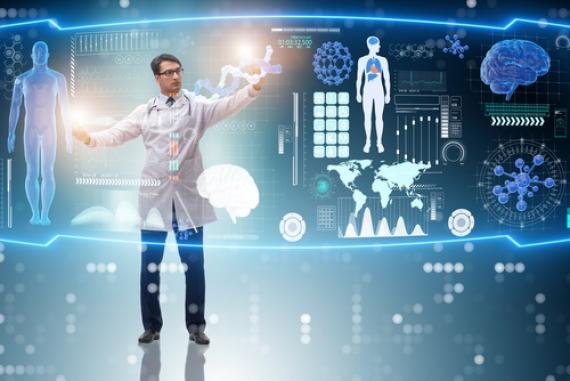The main aim of the technologies is to simplify the everyday lives of humans. Artificial intelligence is revolutionizing and the abilities are wide-reaching in varied sectors. Sectors are leveraging these technologies to successfully operate their activities even during the period of economic uncertainty.
In the case of the healthcare sector, currently, medical and health professionals are the rescuers for the COVID victims. AI is a computer program or machine that has the superpower or the potential to open up access to healthcare, improve health care quality, and also reduction of related costs. Apart from the bright side, AI also carries inherent risks. Artificial intelligence is trained appropriately with quality and voluminous data and they have to be strong enough to work in any complex setting. The risk factor is when AI operates based on biased data; it could result in harming patients.
Dr Kevin Johnson, chair of biomedical informatics prefers Augmented Intelligence to Artificial intelligence. In contrast, healthcare organizations have tapped AI to combat against COVID-19.
AI can provide solutions to the healthcare decision-makers in three key aspects namely: anticipation, simulation, optimization. AI has the potential to allow predictions, help in diagnosis, measure the effectiveness to slow the contagious disease and optimize the resources efficiently.
AI has proven its potentials, for instance, diagnosing lung cancer from a CT scan. Arguments are being thrown out in contradiction to the abilities of AI. Rigorous studies should be undertaken in the development of healthcare AI to determine whether technology is harmful in treating the patients.
There are healthcare organizations that have not yet adopted the Artificial intelligence in their strategic decision making. The decisions have to taken diligently so that the treatment process will be effective for the patients. The statement which highlights the positive of emerging technologies such as AI, wearable, sensors, telemedicine can transform the way of response to the needs of patients in the post-COVID-19.
AI solutions are promising and a huge drive towards the adoption of AI is evident in the market during the pandemic COVID-19. AI is reimaging the healthcare perspective and also influencing the organizations to invest in AI for a better future beyond.

